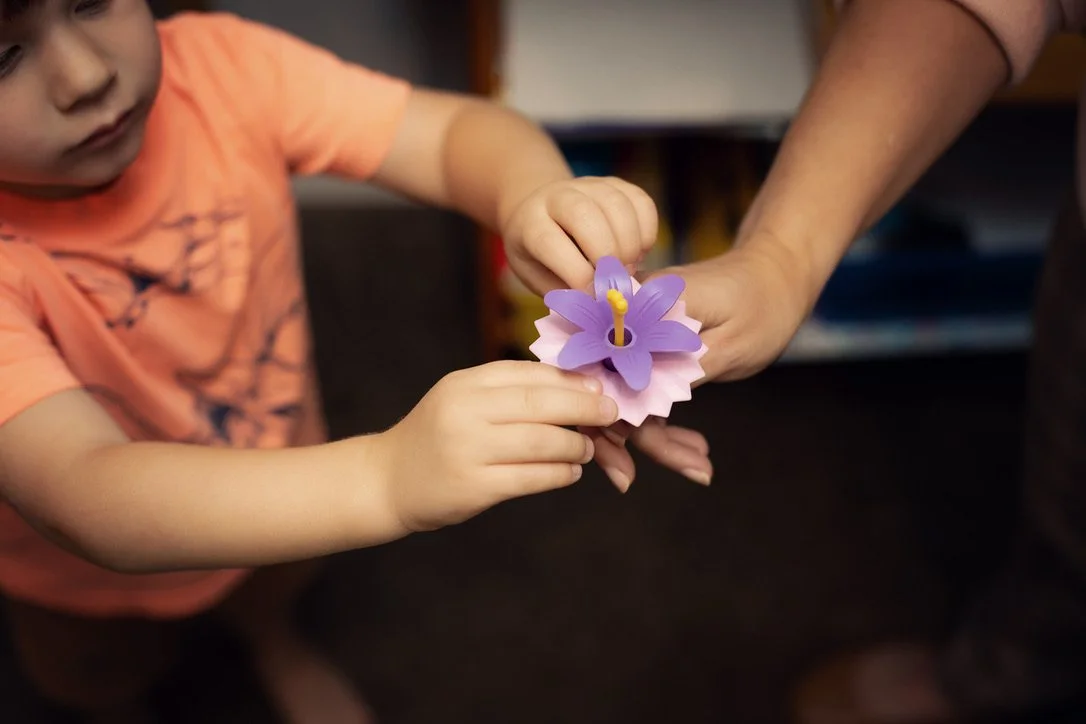Play Therapy: Helping Children Heal Through the Power of Play
When children struggle with big emotions or difficult experiences, talking about it isn’t always easy. Unlike adults, kids don’t have the words to fully explain what they’re going through. That’s where play therapy comes in.
Play therapy is a proven approach that gives children a safe space to express themselves, process feelings, and learn new skills—using their most natural language: play.
What Is Play Therapy?
Play therapy is a form of counseling that uses toys, games, art, and imagination to help children communicate. In sessions, children may build with blocks, act out stories with puppets, or create scenes in a sand tray. While this may look like simple play, each choice reflects what the child is feeling or working through.
A trained play therapist carefully observes and gently guides the process, helping children explore emotions, build confidence, and practice coping strategies in a safe environment.
How Does Play Therapy Help?
Play therapy can support children in many ways, including:
Emotional Expression: Giving kids a healthy outlet for feelings like anger, sadness, or worry.
Building Self-Esteem: Helping them feel capable and confident.
Problem-Solving Skills: Practicing how to handle challenges in safe, playful ways.
Healing From Trauma: Processing difficult experiences without needing to “talk it out” like adults do.
Strengthening Relationships: Improving communication with family, peers, and teachers.
Who Can Benefit?
Play therapy is helpful for children experiencing:
Anxiety, depression, or mood changes
Behavioral challenges at school or home
Family transitions such as divorce or relocation
Grief and loss
Trauma or stressful life events
Social difficulties or trouble making friends
Even children who don’t have a specific diagnosis can benefit, as play therapy supports overall emotional health and resilience.
Why Parents Love Play Therapy
One of the biggest strengths of play therapy is that it meets children exactly where they are. Parents often notice that their child becomes calmer, more confident, and better able to handle life’s ups and downs. Play therapy doesn’t just help children—it can also give parents new insights into their child’s world.
Final Thoughts
Play therapy is more than just playing. It’s a powerful tool that helps children heal, grow, and thrive. By turning play into a pathway for expression and healing, children can discover their voice, their strength, and their sense of safety in the world.
Would you like me to write the next one in a more clinical/educational tone (like something for professionals to read), or keep them warm and parent-facing so families feel invited in?
What is Play Therapy?
Play therapy is an evidence-based approach most often used with children between the ages of 3 and 12. Instead of traditional talk therapy, play therapy uses toys, games, art, sand trays, and role-playing as tools for communication. Through play, children can safely explore difficult emotions, work through trauma, and learn healthier ways to interact with the world around them.
How It Works
In a play therapy session, the therapist provides a safe, structured environment where children are encouraged to freely express themselves. While the child plays, the therapist observes patterns, themes, and expressions that reflect their inner world. With gentle guidance, the therapist helps the child:
Process emotions like fear, sadness, anger, or confusion
Develop problem-solving and social skills
Learn self-control and responsibility
Rehearse new ways of thinking and behaving
Over time, play therapy can reduce challenging behaviors, improve relationships, and foster resilience.
Who Can Benefit from Play Therapy?
Play therapy is often recommended for children experiencing:
Anxiety, depression, or low self-esteem
Grief and loss
Family changes such as divorce or separation
Trauma, abuse, or neglect
Behavioral challenges at home or school
Social difficulties with peers
It’s also supportive for children who may not have a diagnosable mental health concern but still need a safe outlet for emotional growth and self-expression.
Why Play Matters
Play is more than just fun—it’s essential for healthy development. Through play, children practice life skills, develop imagination, and build confidence. Play therapy uses this natural form of expression to meet children where they are and help them move toward healing and growth.
Final Thoughts
Play therapy gives children a voice when words aren’t enough. It allows them to feel seen, understood, and empowered to work through challenges in a way that feels natural and safe. For parents, seeing a child’s transformation through play therapy can be a powerful reminder: healing doesn’t always come through talking—it often comes through playing.

